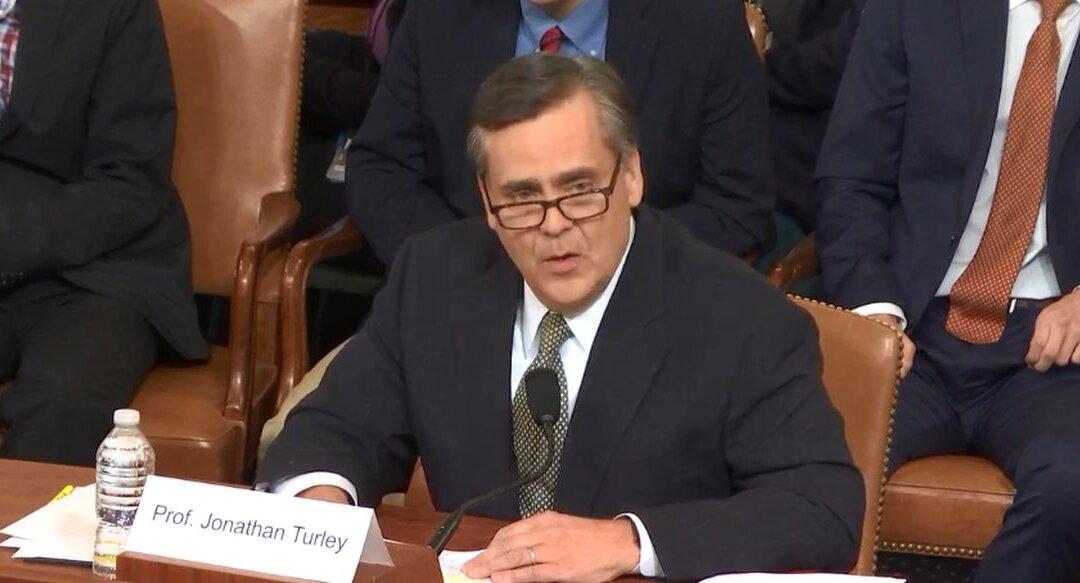George Washington University law professor Jonathan Turley said Thursday that Democrats’ attempts to get Supreme Court nominee Amy Coney Barrett to recuse herself from certain cases is inappropriate because the rules for recusal do not apply to the issues the senators asked the judge about.
During the confirmation hearings this week, one of the key issues Democrats have focused on is attempting to get Barrett to commit to recusing herself from cases that President Donald Trump has spoken about in public, including any cases related to Obamacare or the upcoming Nov. 3 election.





